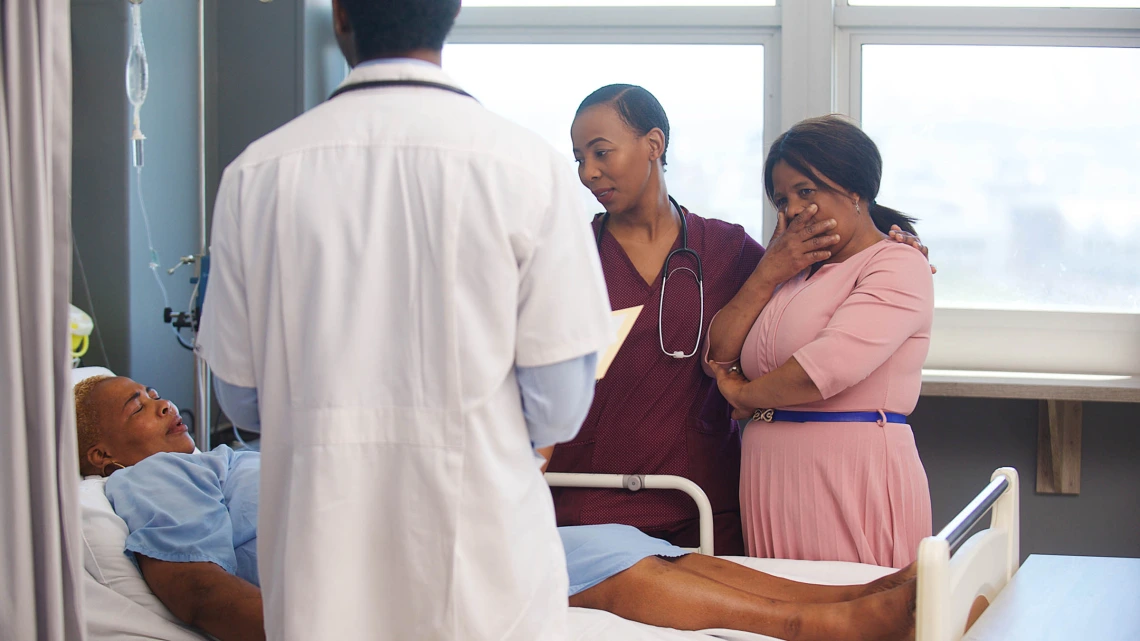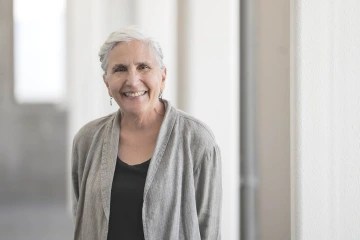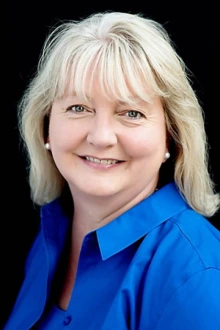Interprofessional Program Builds End-of-Life Care Education
Faculty and staff from across UArizona Health Sciences are collaborating to develop new curriculum to enhance student training in end-of-life care.

A new program under development at UArizona Health Sciences will offer age, gender and culturally sensitive training to students to help patients initiate and discuss end-of-life care. The interdisciplinary initiative will provide guidance to doctors, nurses, pharmacists and other health professionals.
It’s an uncomfortable yet necessary part of being a health care professional – knowing how to speak with patients and their families about serious illness and end-of-life care. The University of Arizona Health Sciences will soon be preparing students across professions for those conversations through a patient-centered educational program on how to provide compassionate care and engage one another differently in talking about death and dying.

Mindy Fain, MD
“We have data showing the need that patients and families have expressed for their providers to deliver better serious illness and end-of-life care, and we did surveys of all the students in the Health Sciences colleges. Uniformly, every Health Sciences student expressed the need and interest in getting this training,” Dr. Fain said. “The unified curriculum we create can be tailored to the needs of students from every health care profession, to allow them to better serve patients and their families.”
The program’s goals are to:
- Transform cultural attitudes among UArizona Health Sciences students and faculty about aging, serious illness, death and dying by implementing an evidence-based, patient-centered education and training program to assure compassionate end-of-life care for patients and their families;
- Ensure every graduating student will have basic competency in serious illness and end-of-life care; and
- Create a cadre of health care professionals who promote advance care planning.
Dr. Fain will work with UArizona Health Sciences partners including the College of Medicine – Tucson, the College of Nursing, the College of Pharmacy, the Mel and Enid Zuckerman College of Public Health, Center for Rural Health, the Andrew Weil Center for Integrative Medicine, and the Southwest Folklife Alliance.
“The unified curriculum we create can be tailored to the needs of students from every health care profession to allow them to better serve patients and their families.”
Mindy Fain, MD
Michael D. Dake, MD, senior vice president for UArizona Health Sciences, has been a long-time supporter of developing an interprofessional end-of-life curriculum and worked closely with Dr. Fain, Dan Derksen, MD, associate vice president for health equity, outreach and interprofessional activities, and the Lovell Foundation to make it happen.
In addition to engaging faculty experts in each of the Health Sciences colleges and centers, Dr. Fain and the team are collaborating with curriculum designers to develop interprofessional and discipline-specific educational materials that can be easily incorporated into existing courses and lesson plans.
Lisa O’Neill, DBH, MPH, the Center on Aging’s associate director of education and policy and a clinical assistant professor in the College of Medicine – Tucson, said the partnership will address the needs of health care professionals who serve in diverse roles, from physicians and nurses to pharmacists and public health professionals. Students who complete the program will be well prepared to address ethnic, gender, LGBTQ+ and age issues related to terminal illness and death.

Lisa O’Neill, DBH, MPH
“We want to unify the language across the Health Sciences so that we will have a common and discipline-specific, case-based curriculum that serves the needs of pharmacists, nurses, public health workers and medical providers,” Dr. Fain said. “Even within medicine, the conversations are different. What a surgeon needs to know about having serious conversations with their patients is different than what a primary care physician needs to know.”
“Some of the information that we got back from faculty and other providers is they know the information is out there, but some of it is so general it's hard for them to incorporate in their care,” Dr. O’Neill added. “We want to give students the skills to have those conversations with their specific patients.”
Lovell Foundation Executive Director John Amoroso said he hopes the program will help end the stigma and discomfort people experience when talking about end-of-life care.
“With this grant, the Lovell Foundation is trying to ensure that every University of Arizona Health Sciences student has a basic knowledge of how to talk about and provide compassionate end-of-life care for people,” Amoroso said. “This is a critical and, to date, missing piece in realizing ‘person-centered, goal-concordant care’ across the spectrum of life’s health care choices made by Arizonans.”
This is not the first end-of-life training the Lovell Foundation has funded at UArizona Health Sciences. A previous award to the Center on Aging funded the Living Will Project for College of Medicine – Tucson students that focused on enhancing medical students’ knowledge and comfort about end-of-life care, including advance directives and goals of care conversations by engaging students in a series of end-of-life care activities over four years, starting with each student writing their own Living Will.
“The Lovell Foundation has been a leader in promoting the best end-of-life care for people and families in our community, and they have a long track record of working with the United Way and funding the Arizona End of Life Care Partnership, a network of organizations and individuals committed to ensuring quality of life at every stage through education, support, sound policy, and choices,” Dr. Fain said, referring to some of the other efforts in which UArizona Health Sciences faculty collaborate. “There's clearly a need for training our health professional students across the Health Sciences in serious illness and end-of-life care. We are excited about the possibility of bridging that gap.”

